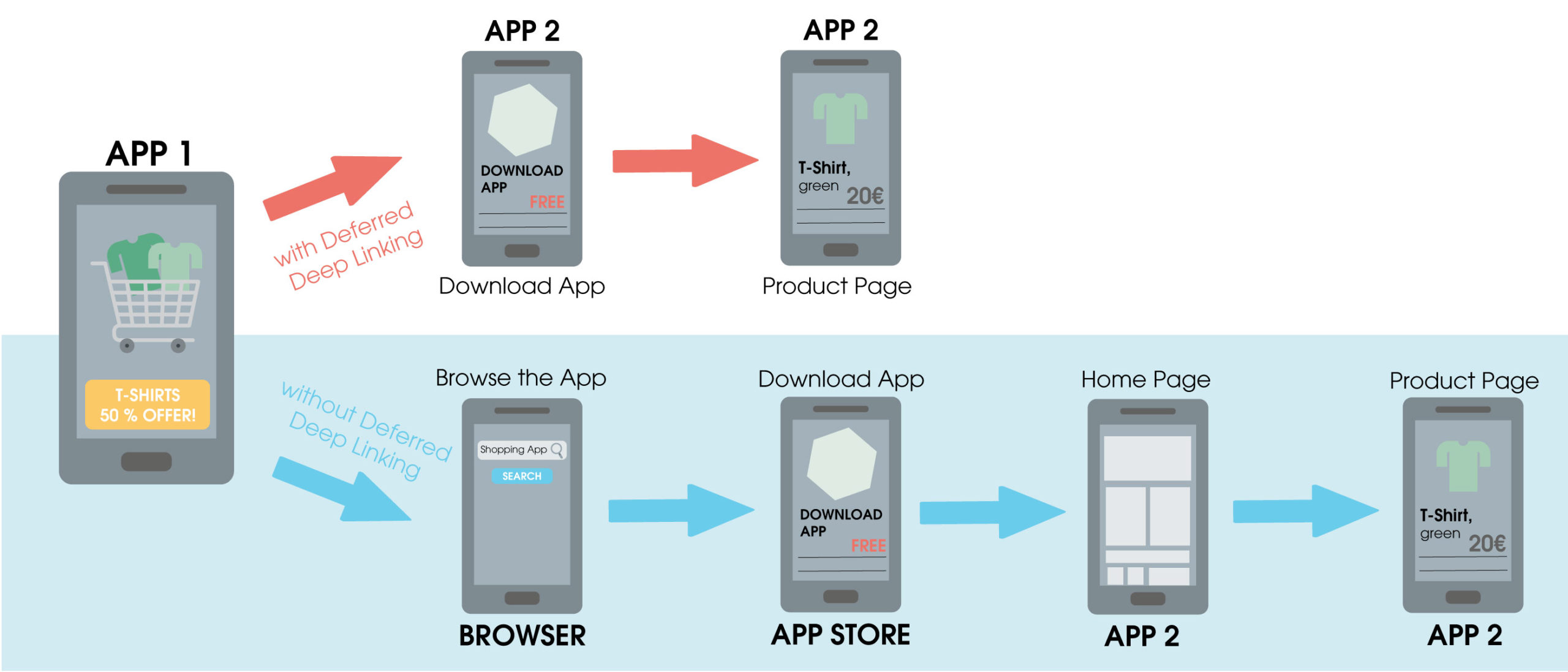Deep Hot Link: The Ultimate Guide To Understanding And Mastering Digital Connections
So listen up, folks, because we're diving deep into the world of deep hot link, a term that might sound a little mysterious but trust me, it's about to become your new best friend. In today's digital age, where everything is interconnected, understanding how links work can be a game-changer. Whether you're a tech-savvy individual or just someone trying to wrap their head around the basics, this guide will break it down for you in a way that's easy to digest. Let's get started, shall we?
Deep hot link isn't just some random buzzword floating around the internet. It's a powerful tool that can elevate your online presence and help you navigate the vast digital landscape. Think of it as the secret sauce that makes websites, apps, and digital content work seamlessly together. By the end of this article, you'll have a solid grasp of what deep hot link is, why it matters, and how you can leverage it to your advantage.
Before we dive deeper, let's set the stage. This isn't just another tech article filled with jargon that leaves you scratching your head. We're keeping it real, breaking it down in a way that feels like we're having a conversation over coffee. So grab your favorite drink, sit back, and let's explore the ins and outs of deep hot link together. Trust me, you're gonna want to stick around for this one.
Read also:Is Brian Taylor Cohen Married The Untold Story
What Exactly is Deep Hot Link?
Deep hot link refers to the practice of embedding hyperlinks within a webpage or application that directly points to specific content or sections within another site or app. Unlike regular links that take you to the homepage, deep hot links bypass the surface and drop you right into the heart of the matter. It's like skipping the lobby and heading straight to the executive suite. Pretty cool, right?
Imagine you're browsing an article, and instead of clicking on a generic link that takes you to the main page of a website, you're instantly directed to the exact article or product you were looking for. That's the magic of deep hot link. It enhances user experience by saving time and ensuring that visitors land exactly where they need to be.
Why Should You Care About Deep Hot Link?
In today's fast-paced world, attention spans are shorter than ever. Users expect instant gratification, and anything that slows them down can lead to frustration and abandonment. Deep hot link addresses this issue head-on by streamlining the navigation process. It's all about efficiency and convenience, which are key factors in keeping users engaged and satisfied.
- Boosts user experience by reducing navigation time.
- Increases the likelihood of users finding what they need quickly.
- Enhances SEO performance by improving click-through rates.
How Does Deep Hot Link Work?
Now, let's get a little technical. When you create a deep hot link, you're essentially crafting a URL that includes specific parameters or identifiers that point to a particular piece of content. For example, instead of linking to "www.example.com," you might link to "www.example.com/article/123." This tells the browser or app exactly where to go, eliminating the need for users to search or navigate further.
This process involves understanding the structure of the target website or app and identifying the unique elements that make each piece of content distinguishable. It's like giving each page or section its own unique address, making it easy to find and access.
Key Components of a Deep Hot Link
There are a few essential components that make up a deep hot link. Let's break them down:
Read also:Joni Lamb Resigns The Inside Story You Need To Know
- Base URL: The main address of the website or app.
- Path: The specific route to the desired content.
- Parameters: Additional information that further refines the link.
Benefits of Using Deep Hot Link
The advantages of deep hot link go beyond just improving user experience. It can have a significant impact on your digital strategy as a whole. Here are some of the key benefits:
- Improved SEO: Search engines love deep hot links because they provide more specific information about your content, which can improve your search rankings.
- Higher Conversion Rates: By directing users to exactly what they're looking for, you increase the chances of them taking the desired action, whether it's making a purchase, signing up for a newsletter, or reading an article.
- Enhanced Analytics: Deep hot links allow you to track user behavior more accurately, giving you valuable insights into how people interact with your content.
Common Misconceptions About Deep Hot Link
There are a few myths floating around about deep hot link that need to be debunked. For starters, some people believe that it's complicated and requires advanced technical skills. While it does involve some understanding of URLs and web structures, it's not as daunting as it seems. With the right tools and resources, anyone can create effective deep hot links.
Another misconception is that deep hot link is only useful for large websites or apps. In reality, even small businesses and individual creators can benefit from using deep hot links to enhance their online presence and improve user engagement.
Best Practices for Implementing Deep Hot Link
Now that you know the ins and outs of deep hot link, let's talk about how to implement it effectively. Here are some best practices to keep in mind:
- Keep It Simple: Avoid overcomplicating your links with unnecessary parameters. Stick to the essentials and make sure they're easy to understand and use.
- Test Thoroughly: Before deploying your deep hot links, test them to ensure they work as intended and direct users to the correct content.
- Monitor Performance: Keep an eye on how your deep hot links are performing and make adjustments as needed to optimize their effectiveness.
Case Studies: Real-World Examples of Deep Hot Link in Action
Let's take a look at some real-world examples of how deep hot link has been successfully implemented. One notable case is Amazon, which uses deep hot links to direct users to specific products within their vast catalog. This not only improves the shopping experience but also boosts sales by making it easier for customers to find what they're looking for.
Another great example is YouTube, which employs deep hot links to take users directly to specific videos or playlists. This enhances the viewing experience and encourages users to spend more time on the platform.
Data and Statistics
According to a recent study, websites that use deep hot links see an average increase of 20% in user engagement and a 15% boost in conversion rates. These numbers speak volumes about the effectiveness of deep hot link and why it should be a key component of any digital strategy.
Challenges and Limitations of Deep Hot Link
While deep hot link offers numerous benefits, it's not without its challenges. One potential issue is maintaining consistency across different platforms and devices. As technology evolves, ensuring that deep hot links work seamlessly across various browsers and operating systems can be a challenge.
Additionally, there's the risk of broken links if the target content is moved or removed. Regular monitoring and maintenance are essential to avoid this problem and ensure that your deep hot links remain functional and effective.
Future Trends in Deep Hot Link
Looking ahead, the future of deep hot link is bright. As technology continues to advance, we can expect to see even more sophisticated ways of implementing deep hot links. For example, the rise of voice-activated assistants and augmented reality could open up new possibilities for how we interact with digital content through deep hot links.
Moreover, the increasing focus on personalization and customization means that deep hot links will play a crucial role in delivering tailored experiences to users. By leveraging data and analytics, businesses can create deep hot links that not only direct users to specific content but also anticipate their needs and preferences.
Conclusion: Take Action and Start Leveraging Deep Hot Link Today
So there you have it, folks. Deep hot link is a powerful tool that can transform the way you navigate the digital world. By understanding its mechanics and implementing it effectively, you can enhance user experience, boost engagement, and drive better results for your business or project.
Now it's your turn to take action. Start exploring how you can incorporate deep hot link into your digital strategy and see the difference it can make. And don't forget to share your thoughts and experiences in the comments below. We'd love to hear from you!
Thanks for sticking around and reading through this comprehensive guide. If you found it helpful, be sure to check out our other articles for more insights and tips on all things digital. Until next time, stay connected and keep linking!
Table of Contents
- What Exactly is Deep Hot Link?
- Why Should You Care About Deep Hot Link?
- How Does Deep Hot Link Work?
- Key Components of a Deep Hot Link
- Benefits of Using Deep Hot Link
- Common Misconceptions About Deep Hot Link
- Best Practices for Implementing Deep Hot Link
- Case Studies: Real-World Examples of Deep Hot Link in Action
- Data and Statistics
- Challenges and Limitations of Deep Hot Link
- Future Trends in Deep Hot Link
Article Recommendations


